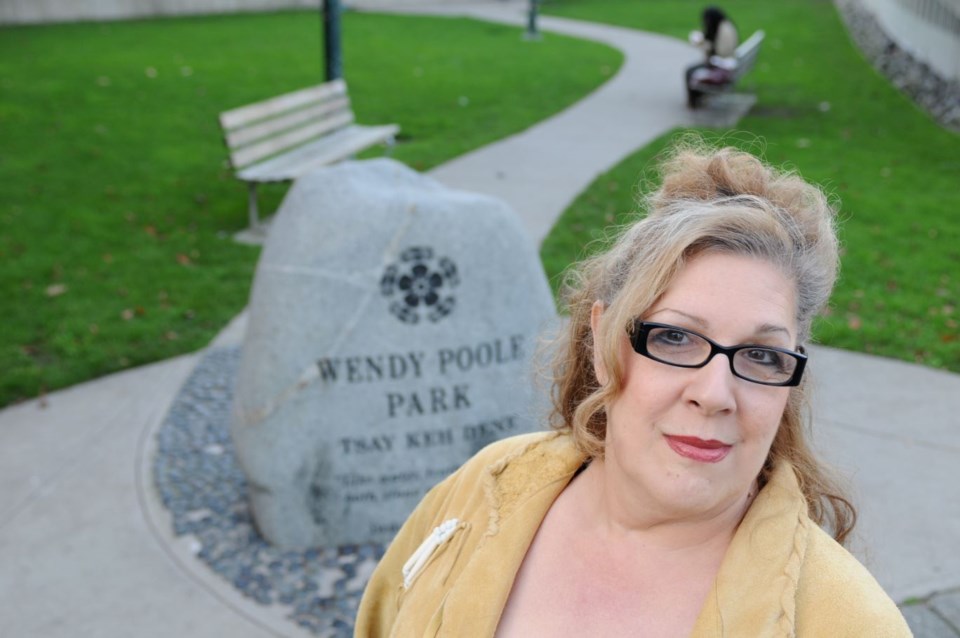As Pride in Vancouver enters its fifth decade with a week-long celebration culminating with the spectacular downtown parade on the August long weekend, let’s turn our minds to a part of the LGBTQ2+ community that does not attract the attention a bedazzling, costumed parade participant might.
I’m referring to LGBTQ2+ elders, who face a disproportionately high likelihood of health challenges arising out of social isolation and an inability to access appropriate care as older adults. As I have written in the past, social isolation for seniors is something all levels of government must address.
This week BC Care Providers Association (full disclosure: I am employed by them) announced a new initiative called “Aging with Pride,” which aims to provide information and resources to seniors housing, home support and care home operators in order to better serve the LGBTQ2+ community.
It is estimated that in B.C. between three and 10 per cent of the population are lesbian, gay, bisexual, transgender, queer, or two-spirited. Which means, of course, that hundreds of thousands of LGBTQ2+ persons access our health care system.
So where are the barriers that make it harder for some people to access aged care? Unfortunately, finding care options for LGBTQ2+ has remained a guessing game unless there is a safe place identified by word of mouth.
Notwithstanding the persistence of homophobia and even ageism, Canadian society is changing, and inclusion is happening more often than not. And in spite of concerns about stigmatization, people are coming out sooner and staying out longer.
However, challenges arise particularly when someone who is LGBTQ2+ becomes elderly and frail. There are many documented instances where someone who has led an “out” life will be faced with going back into the closet because they fear not being welcome or safe.
For someone who is transgender, accessing care can often lead to some awkward or humiliating circumstances if caregivers are not familiar with the unique needs of trans individuals.
I asked my friend Jamie Lee Hamilton, a well-known member of Vancouver’s transgender community who has described some of her recent health challenges on Facebook after suffering a stroke. Jamie Lee is someone I have known over the past two decades through her multiple runs for elected office.
She described to me the anxiety she feels in being mis-gendered by frontline health workers, as was the case in her hospital stay at Vancouver General. She had hoped to be admitted to St. Paul’s hospital, who she says is much more acquainted with LGBTQ2+ clients.
Ironic, she remarked, that the secular health facility would be better prepared than the non-secular for her as a patient.
Her chart stated that her expressed gender was female, but not every nurse read that information. They called her by her male-sounding first name “Jamie.” One nurse even puzzled over why Jamie Lee was putting on eyeliner. She shot back by saying, “Well, some girls like to wear makeup.”
“Not only was I coping with a stroke, but my hospital stay was spiritually hard as well,” said Hamilton. “So, I checked out after a week.”
The good news for her is that she is once again having an active life, albeit with the help of a walker. I quipped that maybe there should be a Pride Parade float with LGBTQ2+ elders on walkers.
“That would be fabulous!” she responded.
I asked Jamie Lee about what the best possible future would look like as she considers a future when she will access aged care.
“Being among my people,” she said. “My biggest fear is being lumped in among a group who know nothing about my life.
“As trans people, we are often functioning on our own. Someday I will not be able to advocate for myself.”
The good news is that there are major institutions where the needs of LGBTQ2+ seniors are being noted. The federal government has a web resource devoted to the needs of this community. Island Health recently launched its own program to meet the needs of these clients.
For LGBTQ2+ seniors, the availability of services for them is going to be inconsistent across many communities. Awareness-building such as the Aging with Pride initiative and education are important to ensure that the phrase “Happy Pride” has meaning for elderly people, too.



